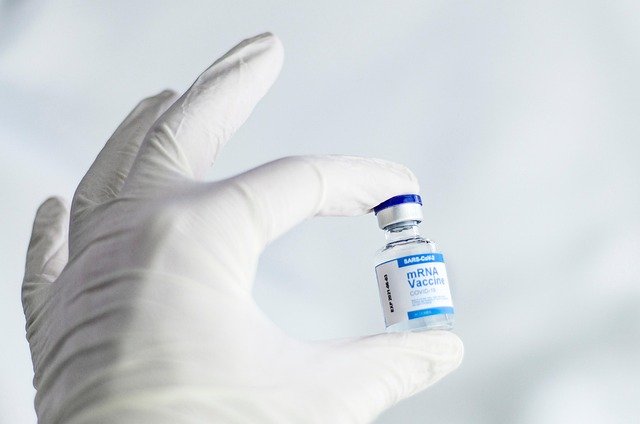Pneumonia Side Effects and Vaccine Guide
Pneumonia can cast a longer-than-expected shadow after the infection clears. This guide explains lingering symptoms, how recovery unfolds in adults and older adults, and simple ways to manage fatigue, chest discomfort, and brain fog. You’ll also find a practical overview of pneumococcal (pneumonia) vaccine side effects, plus preparation and aftercare tips grounded in current guidance.

What to Expect After Pneumonia Treatment
Recovery from pneumonia varies significantly depending on the severity of the infection, the patient’s overall health, and the type of treatment received. Most patients experience a gradual improvement in symptoms over several weeks. Common experiences during recovery include persistent fatigue, which can last for several months as the body rebuilds its strength. Shortness of breath may continue for weeks, particularly during physical activity.
Coughing often persists for 2-6 weeks after treatment begins, sometimes producing phlegm as the lungs clear remaining infection. Some patients report chest discomfort or a feeling of tightness that gradually diminishes. Sleep patterns may remain disrupted temporarily, and appetite often returns slowly. Healthcare providers typically schedule follow-up appointments to monitor progress and ensure complete recovery.
Why Pneumonia Awareness Matters Now
The importance of pneumonia awareness has intensified in recent years due to several factors affecting public health. Antibiotic resistance continues to challenge treatment effectiveness, making prevention more critical than ever. An aging population faces higher risks of severe complications from pneumonia, emphasizing the need for proactive measures.
Healthcare systems worldwide have recognized pneumonia as a leading cause of hospitalization among older adults. The condition’s ability to progress rapidly makes early recognition and treatment essential. Additionally, people with chronic conditions like diabetes, heart disease, or compromised immune systems face elevated risks, making awareness campaigns vital for vulnerable populations.
Key Benefits of Pneumonia Prevention Awareness
Understanding pneumonia prevention offers numerous advantages for individuals and communities. Education about risk factors helps people make informed decisions about their health, including lifestyle modifications that reduce susceptibility. Awareness of vaccination options empowers individuals to discuss preventive measures with healthcare providers.
Knowledge about early warning signs enables faster medical intervention, potentially preventing hospitalization and serious complications. Communities with higher awareness levels often demonstrate better vaccination rates and reduced disease transmission. Healthcare costs decrease when prevention strategies are effectively implemented, benefiting both individuals and healthcare systems.
Recovery and Prevention Steps for Pneumonia
Successful pneumonia recovery involves several key components that patients should understand. Rest remains fundamental, as the body requires energy to fight infection and heal lung tissue. Staying hydrated helps thin mucus secretions, making them easier to expel. Following prescribed medication schedules completely, even when feeling better, prevents antibiotic resistance and ensures full recovery.
Prevention strategies include annual flu vaccinations, as influenza often leads to secondary pneumonia infections. Pneumococcal vaccines provide protection against the most common bacterial cause of pneumonia. Good hygiene practices, including regular handwashing and avoiding close contact with sick individuals, reduce transmission risks. Maintaining overall health through proper nutrition, regular exercise, and adequate sleep strengthens immune system function.
Potential Challenges During Pneumonia Recovery
Several challenges may arise during pneumonia recovery that patients should anticipate. Medication side effects from antibiotics can include digestive upset, which may require dietary adjustments or probiotic supplementation. Some patients experience anxiety about recurring symptoms, particularly when normal recovery-related coughing occurs.
Returning to normal activity levels requires patience, as rushing back too quickly can lead to setbacks. Work or school absences may create stress, but premature return often prolongs recovery time. Social isolation during contagious periods can affect mental health, making support systems important. Weather sensitivity may increase temporarily, with cold air triggering coughing spells.
Healthcare providers may need to adjust treatment plans if initial medications prove ineffective. Managing underlying conditions becomes more complex during pneumonia recovery, requiring careful coordination between healthcare providers. Some patients develop complications like pleural effusion, requiring additional treatment interventions.
Vaccination Options and Considerations
Multiple vaccine options exist for pneumonia prevention, each targeting different bacterial strains or age groups. Pneumococcal conjugate vaccine (PCV13) protects against 13 types of pneumococcal bacteria and is recommended for children under 2 and adults over 65. Pneumococcal polysaccharide vaccine (PPSV23) covers 23 bacterial strains and is typically given to adults 65 and older or those with specific health conditions.
Healthcare providers determine appropriate vaccination schedules based on individual risk factors, medical history, and current guidelines. Some patients require both vaccine types, administered at different times. Side effects from pneumonia vaccines are generally mild, including temporary soreness at the injection site or low-grade fever.
Timing considerations include avoiding vaccination during acute illness and coordinating with other routine immunizations. Insurance coverage for pneumonia vaccines varies, though most plans cover recommended vaccinations for appropriate age groups. Discussing vaccination options with healthcare providers ensures personalized recommendations based on individual circumstances.
This article is for informational purposes only and should not be considered medical advice. Please consult a qualified healthcare professional for personalized guidance and treatment.




